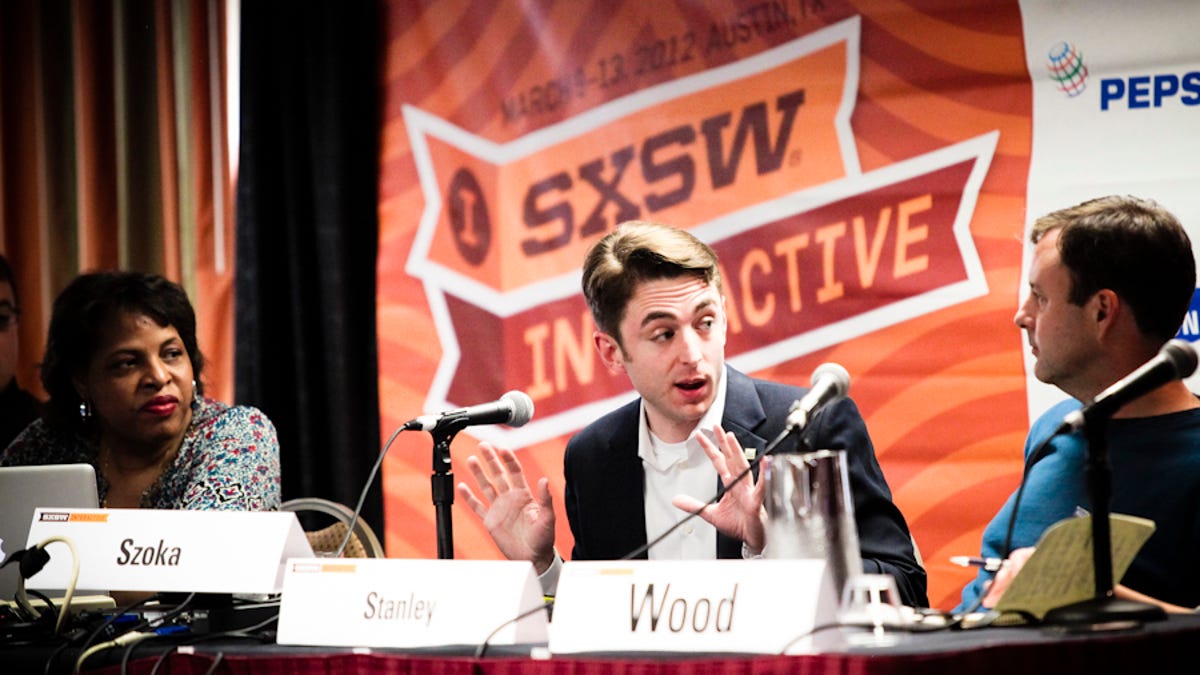At CNET's SXSW 'big data' panel, sparks fly over privacy
Panelists from leading tech advocacy groups squared off during a discussion about how Internet companies should be regulated. Agreement was hard to come by on consumer protections.

AUSTIN, Texas--Representatives from opposite sides in the "big data" privacy debate tangled Sunday over whether a proposed White House "privacy bill of rights" is necessary to keep Americans safe online.
During a "big data" panel sponsored by CNET at South by Southwest, Berin Szoka, president of the non-partisan, non-profit, tech policy think tank TechFreedom, argued that states and the federal government might have better results providing privacy protections for Americans by enforcing existing laws than they would if they adopted new regulations.
"We have a difference of opinion of when government should get involved," Szoka said of his sparring with panelists from the Electronic Privacy Information Center and the ACLU. A better way is having the FTC "punishing unfair trade practices" when Web companies go astray, he suggested.
In the past, the federal agency has punished Facebook, Google, and Twitter for a number of violations.
But Szoka was matched in his passion for his position by Lillie Coney, the associate director of EPIC and Jay Stanley, an ACLU privacy attorney. CNET chief political correspondent Declan McCullagh was also on the panel, generally siding more with Szoka than with Coney or Stanley during the hour-long panel discussion moderated by CNET's Molly Wood.
The ACLU "is on the side of dynamism" and "in favor of freedom," Stanley told the audience. "But to identify dynamism with absolutely no government regulation, or not attempting to steer the direction of technology, is oversimplification."
Privacy and consumer watchdogs have urged the Obama administration to adopt new regulations that could rein in Internet companies' use of users' data. Recently, the White House issued a blueprint that could add new consumer protections if a divided Congress goes along.
"One of the real potential harms [is that] big data has huge potential to do great things...cool things," Stanley said. "But it also has the potential to invade our privacy by revealing things we didn't choose to reveal."
Correction, 2:02 p.m. PT: This item originally misspelled Berin Szoka's first name and failed to identify him as the founder of the think tank TechFreedom.

